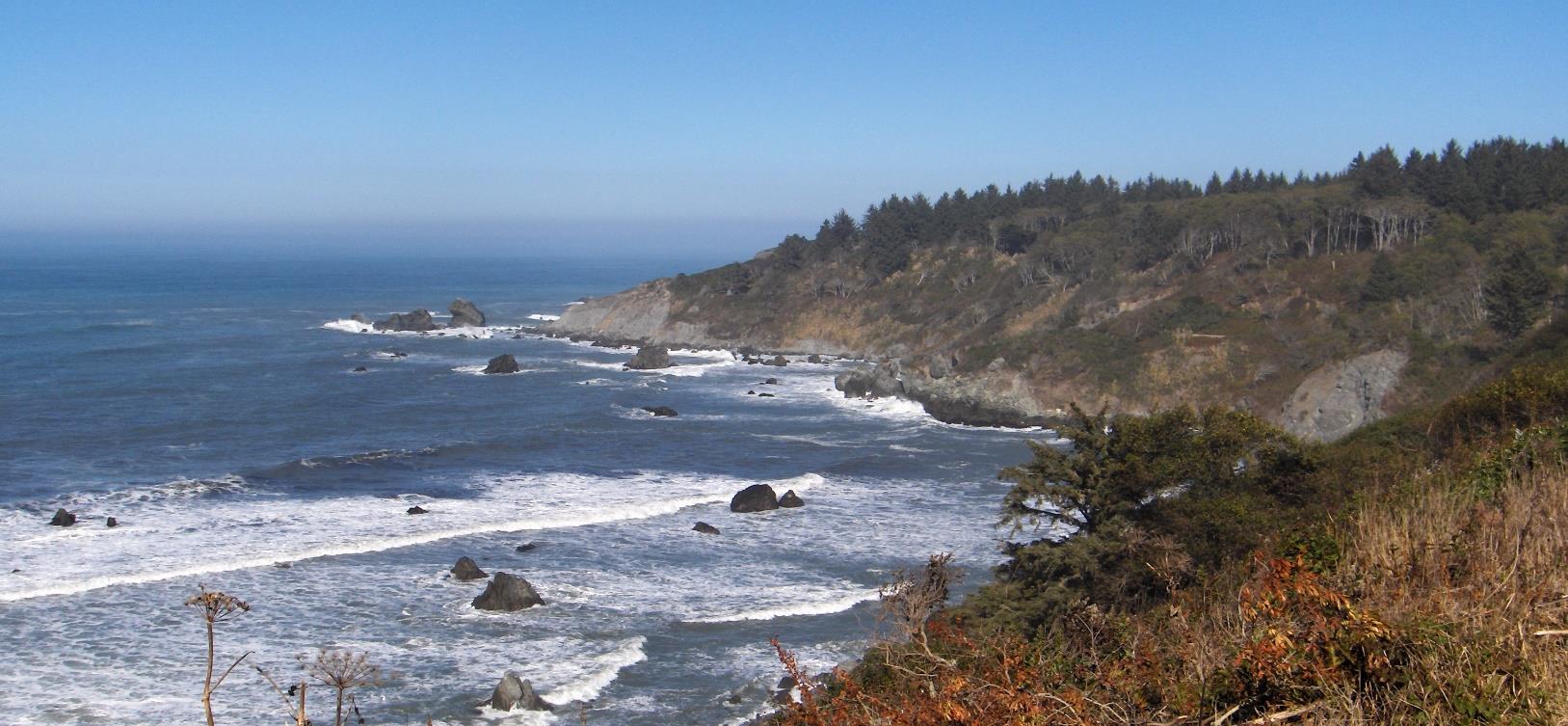
- Details
- By Native News Online Staff
On Friday, November 22, 2024, three federally recognized California Tribal Nations—Tolowa Dee-ni' Nation, Pulikla Tribe of Yurok People, and Cher-Ae Heights Indian Community of the Trinidad Rancheria—signed an inter-tribal treaty of stewardship and responsibility. This historic agreement solidifies their collaboration in managing, protecting, and restoring the Yurok-Tolowa Dee-ni' Indigenous Marine Stewardship Area (IMSA).
The treaty builds on the landmark creation of the IMSA last year, the first marine protected area in the United States established by Tribal governments. Spanning from the Oregon-California border to just south of Trinidad in Humboldt County, the IMSA supports California’s goals for biodiversity and durable conservation by 2030. This marine area is home to species of deep cultural importance to the Tribes, including mussels, seaweed, kelp, clams, abalone, smelts, salmon, candlefish, green sturgeon, shorebirds, and lamprey (eels).
By signing the treaty, the Tribes commit to jointly safeguarding their ancestral ocean and coastal territories. Their partnership focuses on co-managing critical ecosystems, preserving cultural practices and economies, and addressing the impacts of climate change. The IMSA initiative addresses significant threats to the area, including poor water quality, ocean acidification, species and habitat loss, offshore development, and other climate-related challenges affecting both ecosystems and Tribal communities.
“Together, we will endeavor to protect and restore the biodiversity, water quality, and natural habitats within the IMSA, ensuring the sustainability of our traditional practices and the resilience of our communities,” Tolowa Dee-ni' Chairperson Jeri Lynn Thompson said, "By this treaty, we reaffirm our sovereignty, and the sacred responsibility bestowed upon us at Creation to be stewards of this world.”
“We take our stewardship responsibilities very seriously and are honored to sign this historic Inter-Tribal Treaty with other sovereign Tribal Governments,” said Fawn C. Murphy, Chairperson of the Pulikla Tribe of Yurok People. “Tribal Nations have always taken care of our ocean and coastal territories. Signing this treaty today demonstrates our leadership and our commitment to governing the IMSA in a way that protects tribal culture and restores ocean health.”
“The signing of the IMSA Treaty marks a milestone in our shared journey to protect and restore our ocean and coastal territories that hold deep meaning and value for our people,” said Garth Sundberg, Chairperson of the Cher-Ae Heights Indian Community of the Trinidad Rancheria. “We came together to reaffirm our commitment to safeguarding these waters and lands not only for today but for the generations to come.”
The three Tribal nations acknowledge the need to have direct participation in how their waters and lands are managed, as well as the future of their cultural resources and traditions associated with these sacred places as the climate crisis accelerates.
The treaty reads, in part:
“As sovereign Tribal Nations, we have never ceded or given up our rights to steward, manage, access, and rely upon our ancestral ocean and coastal territories. We continue to assert these unceded rights and practice these responsibilities.
“We, the sovereign nations of Yurok and Tolowa Dee-ni' peoples, envision a future where the Yurok-Tolowa Dee-ni' IMSA thrives in harmony with our cultural lifeways and our Inter-Tribal partnerships foster a legacy of sustainability and continuity that will endure for generations to come.”
The treaty establishes mutual commitments among the three Tribal Nations, including:
- Respecting and supporting each other's sovereignty and the management of their ocean and coastal territories.
- Communicating and collaborating, where appropriate, on policies, governance, and management grounded in Indigenous Traditional Knowledge, research, and monitoring.
- Developing and participating in an Inter-Tribal IMSA Advisory Council to enhance communication, facilitate collaborative approaches, and guide decision-making.
Additionally, the Tribes recognize that other Tribal Nations also share stewardship over this ocean space and have extended an open invitation for those Nations to join and participate in these efforts at any time in the future.
More Stories Like This
NCAI Passes Two Emergency Resolutions on Immigration Enforcement ActivitiesChickasaw Lighthorse Police Officer named Indian Country Law Enforcement Officer of the Year
Indian Gaming Association Rallies Broad Coalition Against Sports Event Contracts It Calls Illegal Threat to Tribal Sovereignty
Navajo Resources and Development Committee Issues Notice on Livestock Inspection Requirements
American Prairie, Tribal Coalition Files Protest Over Rescinded Grazing Rights
Help us defend tribal sovereignty.
At Native News Online, our mission is rooted in telling the stories that strengthen sovereignty and uplift Indigenous voices — not just at year’s end, but every single day.
Because of your generosity last year, we were able to keep our reporters on the ground in tribal communities, at national gatherings and in the halls of Congress — covering the issues that matter most to Indian Country: sovereignty, culture, education, health and economic opportunity.
That support sustained us through a tough year in 2025. Now, as we look to the year ahead, we need your help right now to ensure warrior journalism remains strong — reporting that defends tribal sovereignty, amplifies Native truth, and holds power accountable.
 The stakes couldn't be higher. Your support keeps Native voices heard, Native stories told and Native sovereignty defended.
The stakes couldn't be higher. Your support keeps Native voices heard, Native stories told and Native sovereignty defended.
Stand with Warrior Journalism today.
Levi Rickert (Potawatomi), Editor & Publisher


